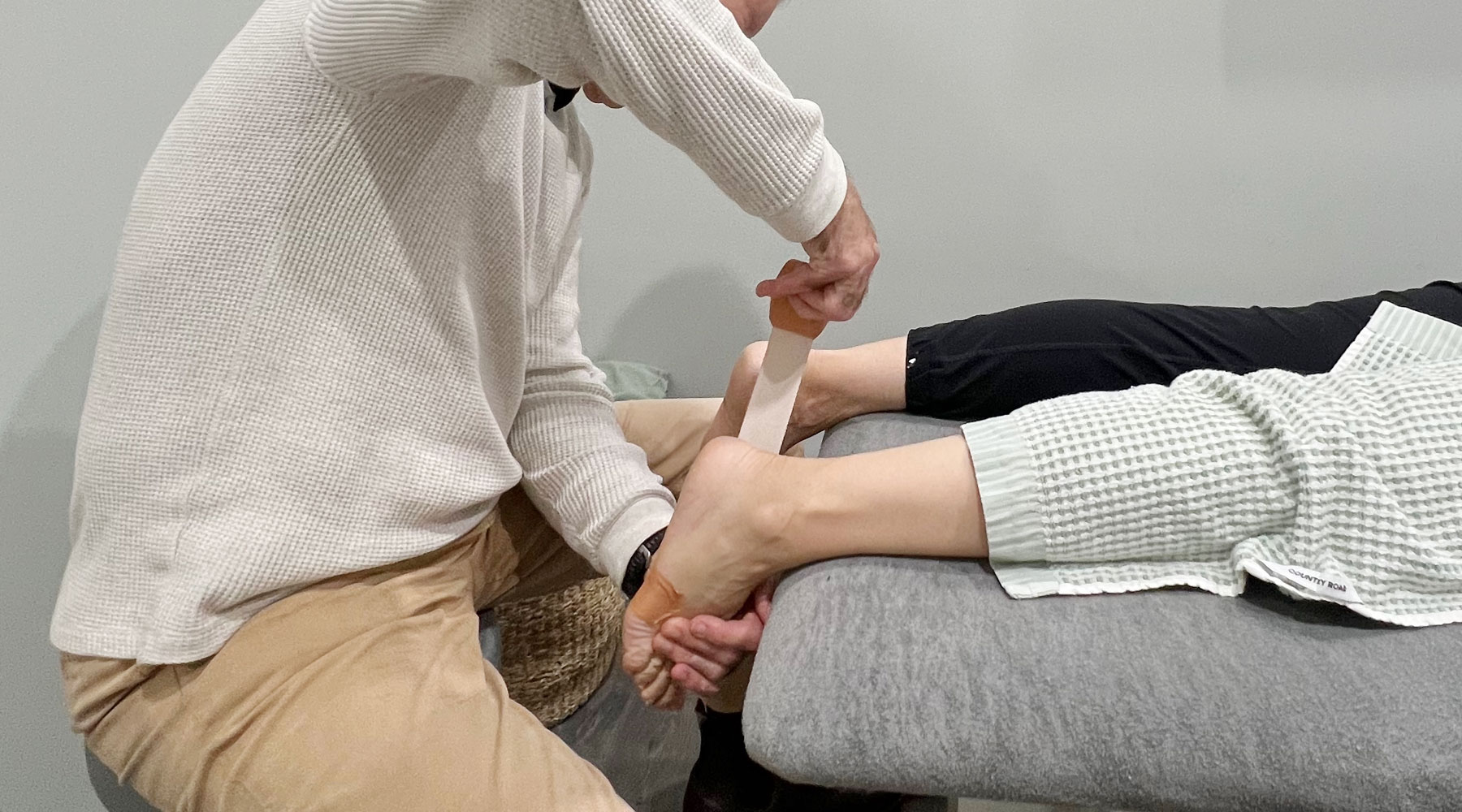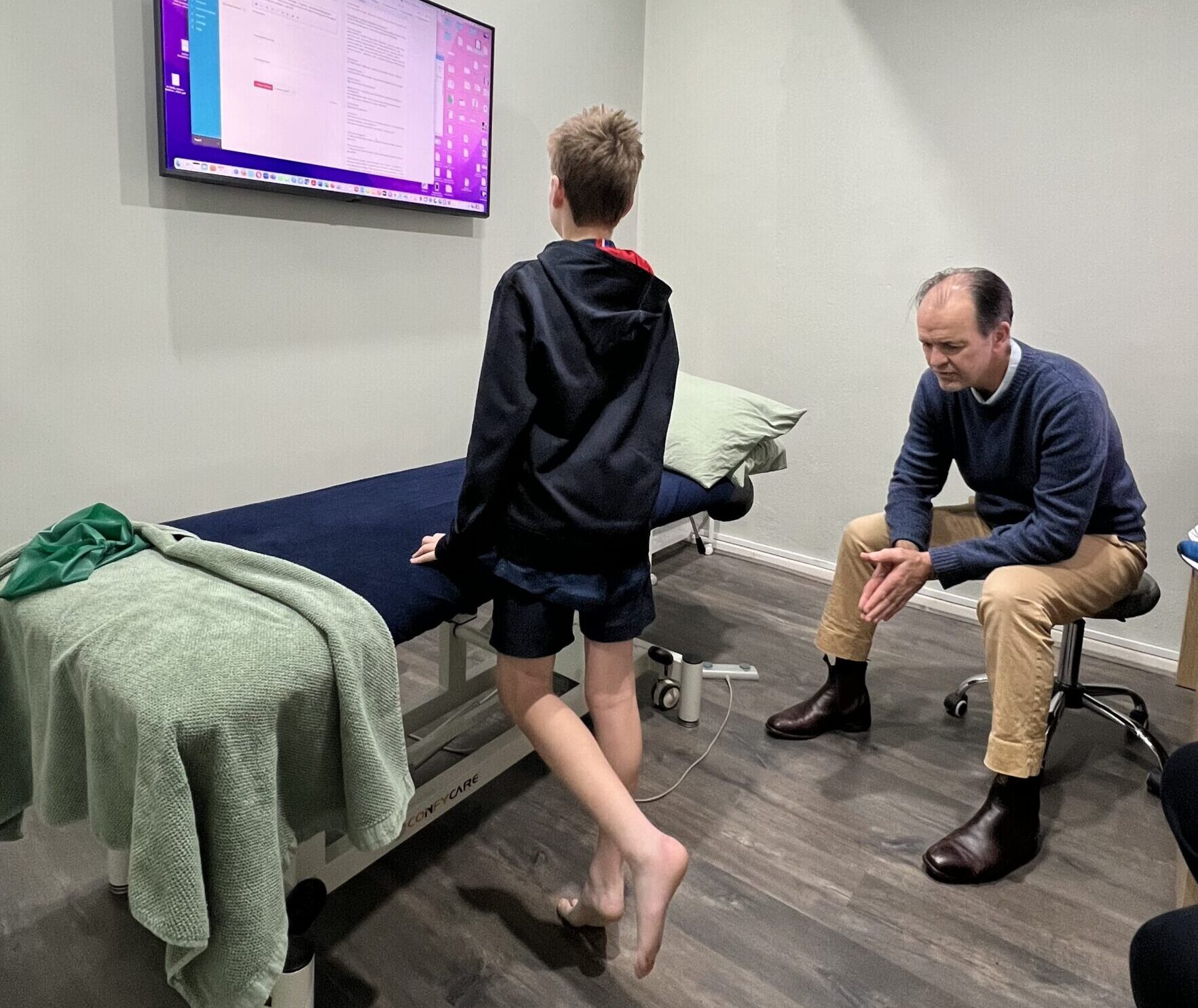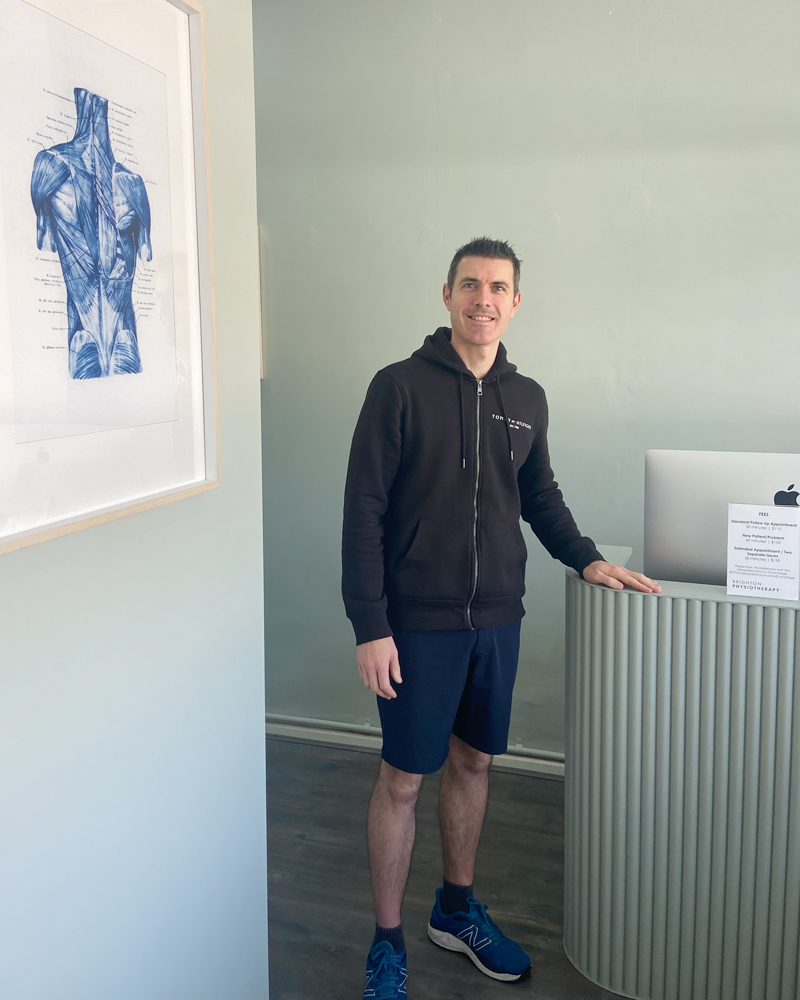Physiotherapy
We will work with you to assess, diagnose, treat and prevent injuries.
At Brighton Physiotherapy, we will work with you to assess, diagnose, treat and prevent injuries. We are experts in body movement and function, and through movement and exercise can get your body function to its optimal capability. We work with people of all ages, injuries, illnesses, and disabilities to assist in improving mobility and movement.

Meet your Physios.
Paul Trainor
APA Titled Sports and Exercise Physiotherapist Bach App Sc (Physio) Mast (Sports and Exercise)
Ryan Cope
Bachelor of Physiotherapy
Master of Exercise Science (Strength and Conditioning)

Our physiotherapy team use the latest research, combined with their clinical knowledge and skills to help you achieve the best outcomes.
Our therapists are skilled in a variety of treatment methods across a broad range of injuries and illnesses including musculoskeletal and cardiothoracic problems. We will work with you to assist with chronic disease or injury management by providing lifestyle and self-management advice.
We believe that our patients should be actively involved in their recovery process in order to benefit most from physiotherapy.
Common Conditions.
Pain is a universal human experience. Throughout our days, we encounter various instances of discomfort, some fleeting and others lingering. Many of these instances are easily explained – a bump, an injury – pain serves as our body's alert system, prompting us to protect and heal. This brief discomfort is termed 'acute pain'. However, when pain persists, extending beyond three months, it transitions into 'chronic or persistent pain'. While some cases stem from ongoing injury or illness, for many, there's no clear evidence of continued harm. Chronic pain persists even after the body has ostensibly healed. Seeking relief from chronic pain often leads individuals to physiotherapy.
How can Physiotherapists alleviate pain?
Physiotherapists offer invaluable insights into the intricacies of pain and the functioning of the nervous and immune systems. Through comprehensive assessments, they can identify various factors contributing to your pain, such as physical condition, personal goals, and an understanding of pain dynamics.
Understanding your pain is the cornerstone for developing a tailored treatment plan. Physiotherapy is patient-centred, empowering individuals to actively participate in decision-making. Research underscores the efficacy of education and treatment that empower patients in managing chronic pain. Exercise, physical activity, and therapeutic relationships fostered by physiotherapists significantly improve pain outcomes.
Chronic pain often impedes movement, but physiotherapists specialise in devising gradual, safe strategies to reintegrate individuals into daily activities. They serve as guides through the healthcare maze, connecting patients with appropriate services. Given the multifaceted nature of pain, a multidimensional approach, such as that offered by physiotherapy, proves far more effective in managing persistent discomfort than singular interventions.
Arthritis encompasses a range of conditions impacting the joints, involving bone, muscle, and surrounding tissues. Common symptoms include joint pain, stiffness, and decreased functionality, often leading to disability and a diminished quality of life. In Australia, arthritis affects approximately 3.5 million individuals, constituting about 15 percent of the population. Among the various types, osteoarthritis (OA) and rheumatoid arthritis (RA) are the most prevalent. While arthritis lacks a definitive cure, its symptoms can be effectively managed through exercise, weight management, lifestyle adjustments, and appropriate medication. In cases where symptoms become unmanageable, joint replacement surgery may be considered.
How Physiotherapy Supports Arthritis:
Physiotherapy assumes a crucial role in arthritis self-management. Given the absence of a cure, treatment aims to alleviate pain, maintain joint mobility, and promote active, healthy living through personalized exercise regimens. Additionally, physiotherapists offer guidance on joint protection strategies. Regardless of arthritis severity, physical activity and exercise stand out as paramount treatment modalities. Many individuals successfully manage their condition solely through exercise, thus averting the necessity for surgical intervention. Moreover, exercise serves as a pivotal tool in preventing or managing other chronic health issues.
Physiotherapists provide valuable advice on pain reduction techniques, such as utilizing hot or cold packs, selecting appropriate footwear, or utilizing supportive aids like walking sticks or hand splints. They also offer insights into activity pacing to minimize pain exacerbation and suggest methods for performing tasks without straining the joints.
Rheumatoid arthritis (RA) stands as one of the prevalent autoimmune diseases in Australia, impacting approximately 2 percent of the population. Notably, women experience RA at a rate approximately 2.5 times higher than men. The onset of RA typically occurs within the age bracket of 40 to 50 years, coinciding with peak income-earning years for many individuals. For women in this age group, grappling with RA presents unique challenges, especially when considering factors such as family planning and parenthood. This period between the ages of 30 and 50 can be particularly demanding as women navigate the complexities of managing RA while striving to fulfill their roles and aspirations, including the journey towards parenthood.
How can Physio help Rheumatoid arthritis?
Optimal management of RA necessitates a collaborative effort from a multidisciplinary healthcare team, typically comprising your GP, a rheumatologist, a physiotherapist, and potentially other specialists like a rheumatology nurse, occupational therapist, podiatrist, and psychologist.
The specific components of care required for effective RA management vary based on individual circumstances and disease activity levels. However, for most individuals, treatment with disease-modifying medications is fundamental.
Physiotherapy plays a crucial role in maintaining and enhancing joint mobility, muscle strength, and providing education on joint protection and flare management. Physiotherapists are adept at assisting individuals in developing personalized self-management strategies. Additionally, they offer guidance on coping with painful and inflamed joints, managing fatigue, and addressing functional challenges such as breastfeeding or lifting and caring for an infant.
Osteoporosis and its milder counterpart, osteopenia, weaken bone structure, heightening the risk of fractures. While these conditions are commonly associated with older individuals and females, males and younger people can also be affected. However, proactive measures can be taken to enhance bone health and reduce fracture susceptibility.
How Physiotherapy Supports Osteoporosis:
Prevention: Physiotherapists play a pivotal role in optimizing bone health. They offer guidance on developing a comprehensive bone health plan, encompassing suitable physical activities, nutritional advice, and strategies to mitigate risks associated with smoking and alcohol consumption. Additionally, physiotherapists identify potential risk factors for poor bone health and facilitate referrals for further assessment and management by other healthcare professionals, such as GPs, rheumatologists, or endocrinologists.
Management of Osteoporosis and Osteopenia:
Physiotherapy constitutes a vital component in the management of osteoporosis and osteopenia. Treatment strategies encompass tailored physical activity and exercise programs aimed at safely strengthening bones, exercises to optimize posture or address postural changes, balance training to reduce fall risk, pain management strategies related to fractures, education on bone health and self-management techniques, and assistance with rehabilitation following a fracture.
Consultation Process.
Begin your recovery journey with a comprehensive 45-minute initial assessment. We recognise the importance of a thorough understanding of your injury and dedicate the necessary time to conduct a meticulous evaluation



